Minidocumentary connects black roots and details how a quilombola cooperative distributed 330 tons of food to 42,000 people during the Covid-19 pandemic
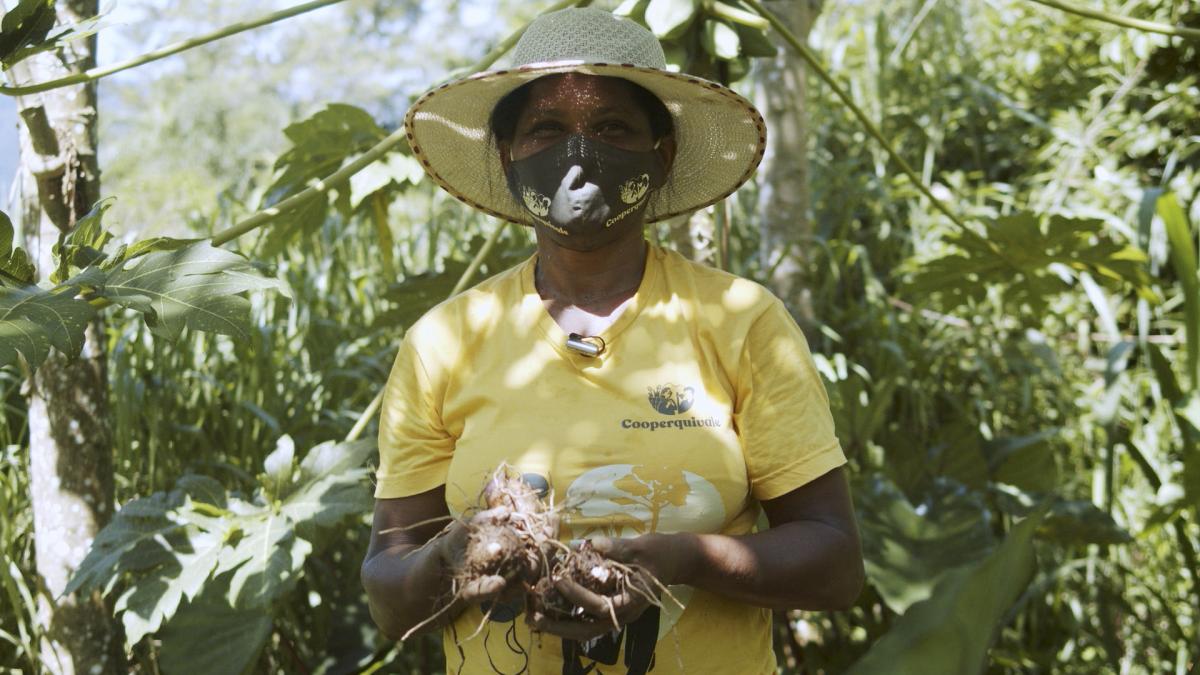
In March 2020, the Quilombola Farmers' Cooperative of the Ribeira Valley (COOPERQUIVALE) felt the brunt of the Covid-19 pandemic. Unilaterally, its contracts to deliver food for school meals with the city halls of São Paulo, Santos, Santo André, and Cajati were suspended.
It was the beginning of a cycle of uncertainty and anguish. With no income and the biggest health crisis of the 21st century knocking at its doors, the cooperative saw its dream of growth and recognition of quilombola food culture threatened.
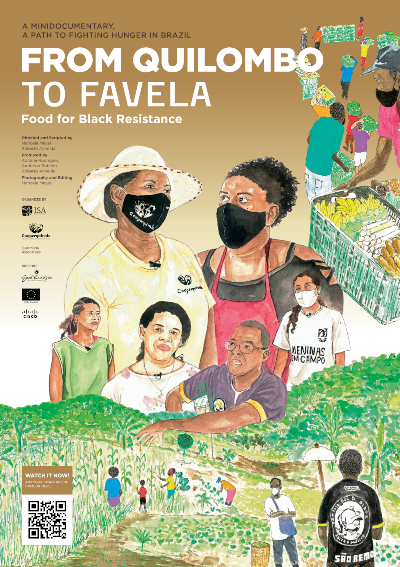
The minidocumentary "Do Quilombo pra Favela - Alimento para a resistência negra" ["From the Quilombo to the Favela - Food for Black Resistance"] (Brazil, 2022, 22 min.) shows how, in a two-year period, COOPERQUIVALE was able to recover and connect its black roots to a favela in the west zone of São Paulo through food and solidarity.
With support from partners, the quilombola cooperative produced an emergency fundraising plan to cover its costs, pay the farmers, and distribute the food that would have been lost in their traditional fields without an outlet.
The result: two years later, the team has managed to supply 330 tons of 56 varieties of food to 11 municipalities in the state of São Paulo. Biodiversity has reached the table in fruits, vegetables, and greens grown with ancestral techniques, which keep the Atlantic Forest standing and increasingly resistant.
In all, 42,000 people received organic and agroecological food baskets, which symbolize a way of living and producing that is part of the Quilombola Traditional Agricultural System, recognized in 2018 as an intangible cultural heritage of Brazil by the Institute of National Historical and Artistic Heritage (IPHAN).
With no support from the state, financial resources came from civil society organizations, companies, and international organizations. The cooperative raised R$1.5 million in the period.
The distribution of the produce was undertaken in partnerships with NGOs, food banks, and Favela residents' associations in the capital city of São Paulo. Among them, the Residents' Association of Jardim São Remo, in the west zone of São Paulo, and the Meninas em Campo project, which promotes women's soccer among young women from the city' s outskirts.
The film follows the work of the cooperative from the first moments of the health crisis to the exchange of experiences between quilombo and favela, which resulted in a soccer match with the full power of black women, farmers, quilombolas, and athletes with a bright future ahead.
The State of Things
In April 2022, the Minister of the Federal Supreme Court (STF) Edson Fachin granted a request made by the Coordination of Rural Black Quilombola Communities (CONAQ) and ordered the federal government to expand access to public policies related to food and nutritional security to quilombola family farmers, including the National School Meals Program (PNAE) and the Food Acquisition Program (PAA).
However, mismanagement of the Covid-19 pandemic and the dismantling of public food policies have led Brazil to its biggest setback in 30 years. A study published in June by the Brazilian Research Network on Food Security and Nutrition shows that 33 million people in Brazil are living in a state of hunger.
And further: 65% of households with people with black reference are experiencing some degree of food insecurity. This is an 8% increase in relation to 2020.
The same study shows that family farming and traditional communities have stopped receiving funding from the PAA and PNAE programs, which are essential for them to produce food to fight hunger.
COOPERQUIVALE's emergency plan portrayed in the film should be seen as a model in the post-pandemic period as it generates income for quilombolas who are able to produce, strengthens family farming, and feeds the hungry.
Watch the mini-doc:
Synopsis:
In the Ribeira Valley, in southeastern São Paulo, a cooperative of quilombola farmers joined forces to minimize the impact of the Covid-19 pandemic. For income generation and food security, they devised an emergency plan for distributing food to vulnerable communities which is organically produced on their traditional farms, which in turn keep the Atlantic Forest standing. Thus quilombo and favela, which seemed distant, became partners in similar struggles.
Credits:
Directed and Scripted by: Manoela Meyer and Roberto Almeida
Produced by: Roberto Almeida and Adriana Rodrigues
Reportage: Adriana Rodrigues, Andressa Cabral Botelho and Roberto Almeida
Local Production: Raquel Pasinato, Frederico Viegas, Mauricio Biesek, Fabiana Fagundes, Juliano Nascimento and Andressa Cabral Botelho
Photography: Manoela Meyer
Editing: Manoela Meyer
Soundtrack: Make you mine (Acoustic) - Mina; Oxumare (Instrumental version) - Maitlna; Idesof Spring - Michael Shynes; Facus - AwaDu; The River of Hope - Emmanuel Jacob; Enjoy the Game - Borrtex; Macune (Instrumental version) - Maitlna; Good to be Alive - John Coggins; Yemaya (Instrumental version) - Maitlna.
Sound Design and Stereo Mix: Otávio Carvalho and Manoela Meyer
Color and Effects: Manoela Meyer
Organized by: Instituto Socioambiental (ISA), Quilombola Associations, COOPERQUIVALE
Support: European Union, Cisco, Good Energies
Partnerships: Linha D'Água Institute, Enseada da Baleia Residents' Association, Brasil a Gosto Institute, Equipe de Articulação e Assessoria às Comunidades Negras do Vale do Ribeira (EAACONE), Eldorado City Hall, Iporanga City Hall, Cananéia City Hall, Jandira City Hall, Embu das Artes City Hall, NGO Bloco do Beco, Jardim São Remo Residents' Association, Vila Brasilândia Residents' Association, Grupo Conexão Petar, Associação Mulheres Unidas por uma Vida Melhor (AMUVIM), Projeto Meninas em Campo and Colégio Santa Cruz
About COOPERQUIVALE
Founded in 2012, the Quilombola Farmers' Cooperative of the Ribeira Valley (COOPERQUIVALE), based in Eldorado (SP), markets the surplus production of the quilombola territories in a fair and solidary way.
Today, the cooperative is made up of 19 quilombola communities in the municipalities of Jacupiranga, Eldorado, Iporanga, and Itaóca, in Vale do Ribeira. In all, the cooperative has about 240 members.
The cooperative's main strategy is to commercialize more than 78 foods from its agro-biodiversity for institutional purchasing programs, such as the Food Acquisition Program in the Simultaneous Donation modality (PAA-DS) and the National School Meals Program (PNAE).
Translation: Philip Somervell


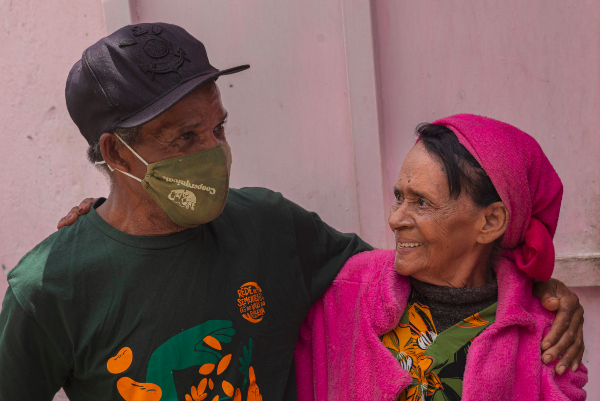
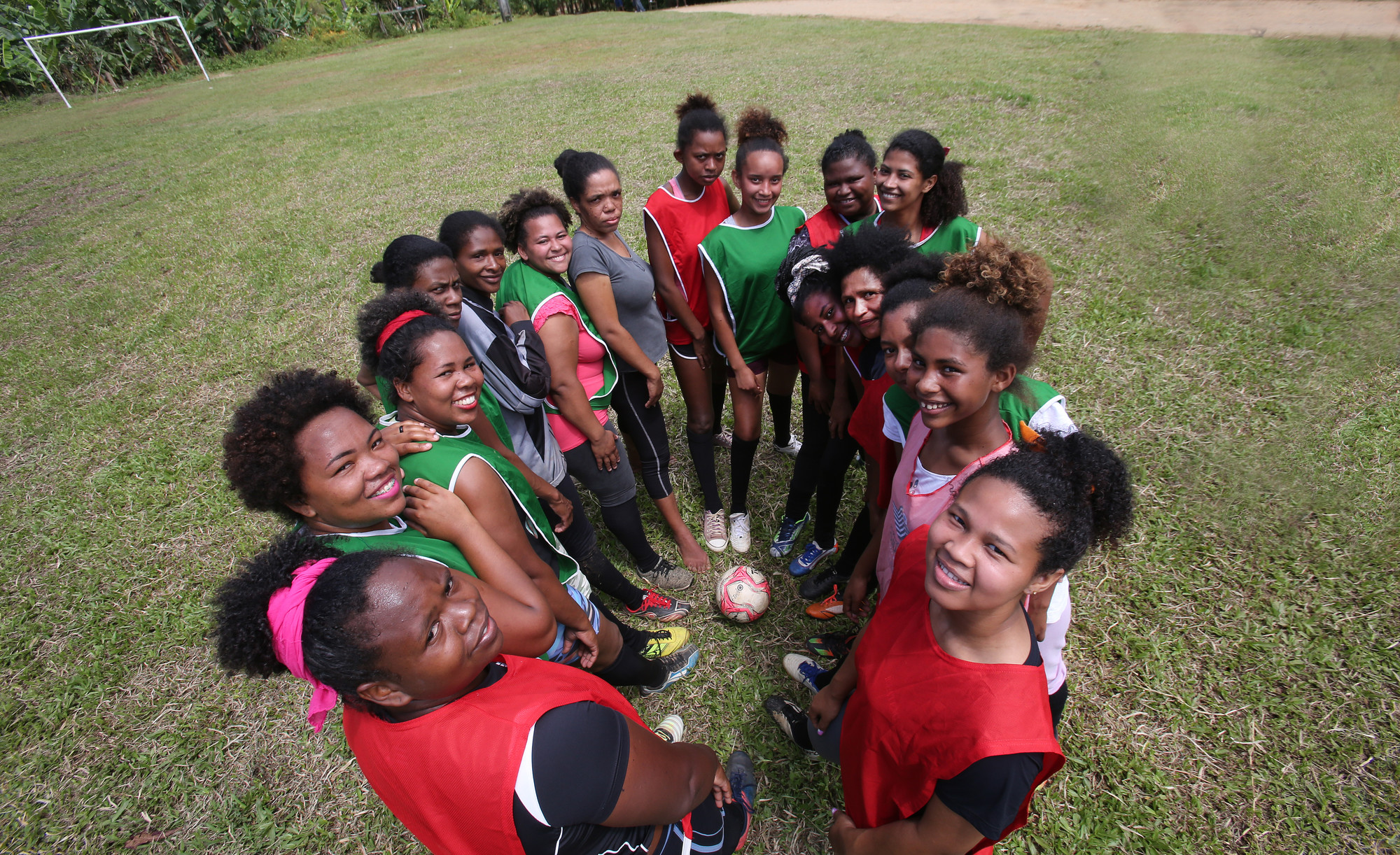
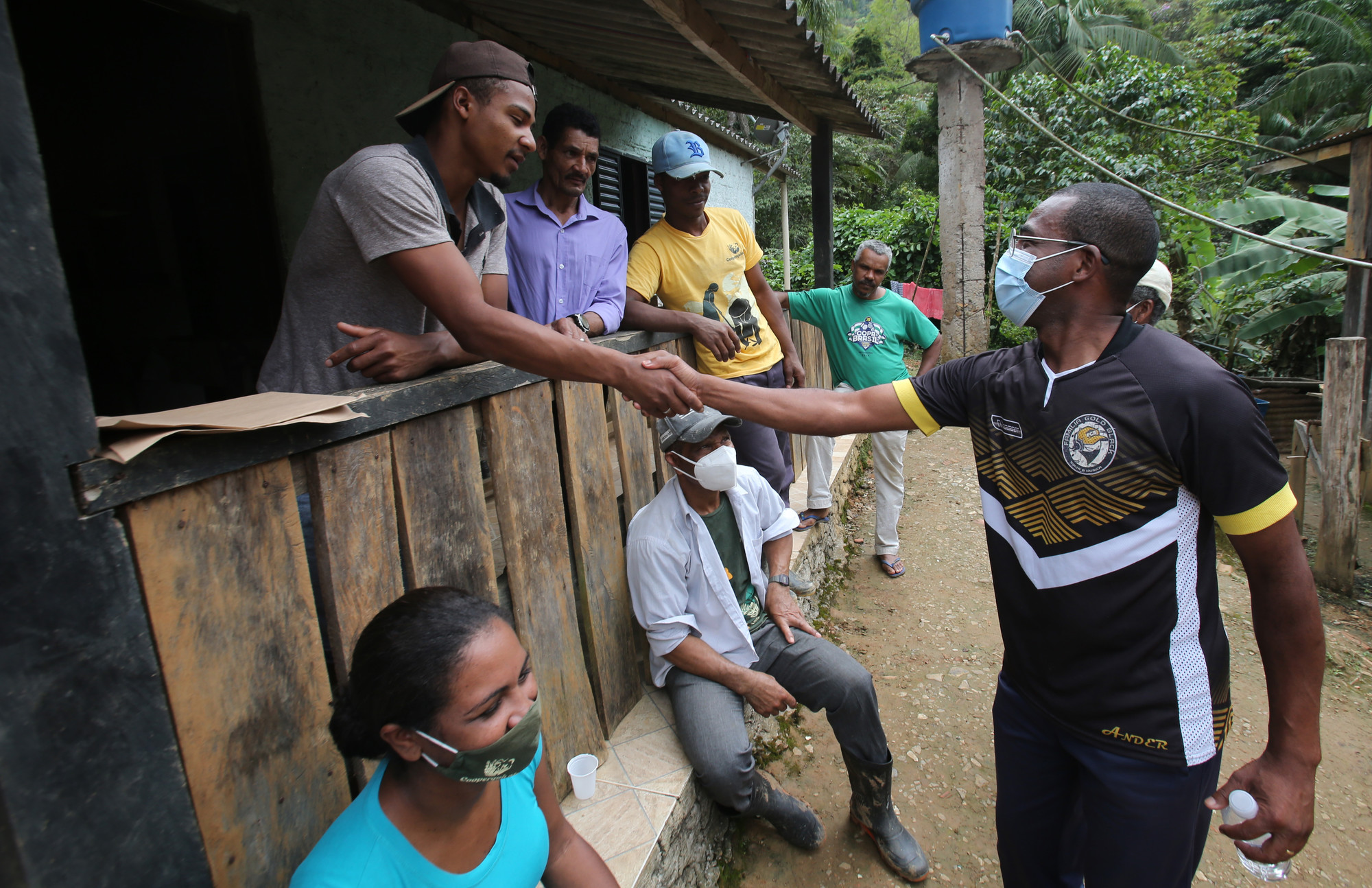
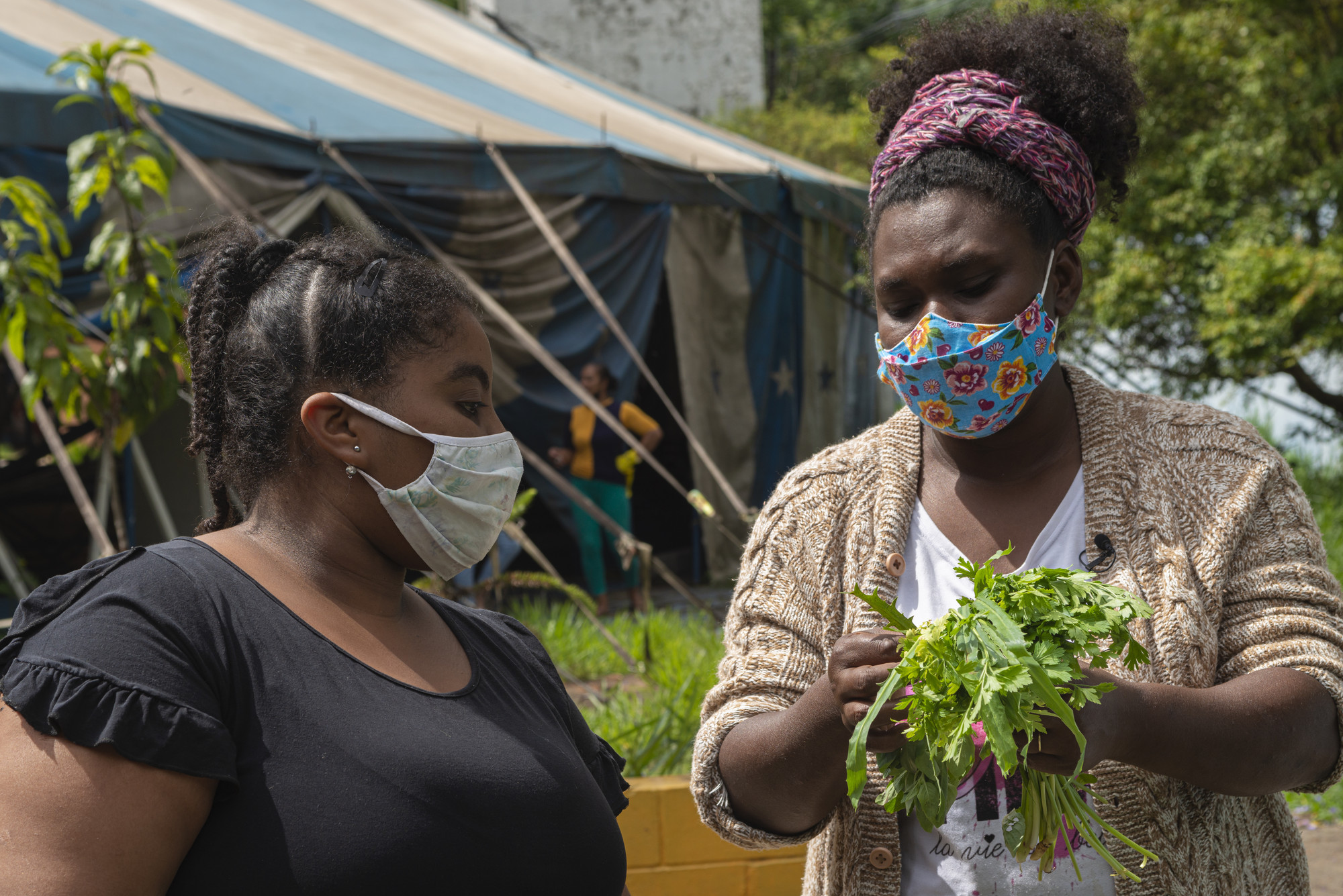
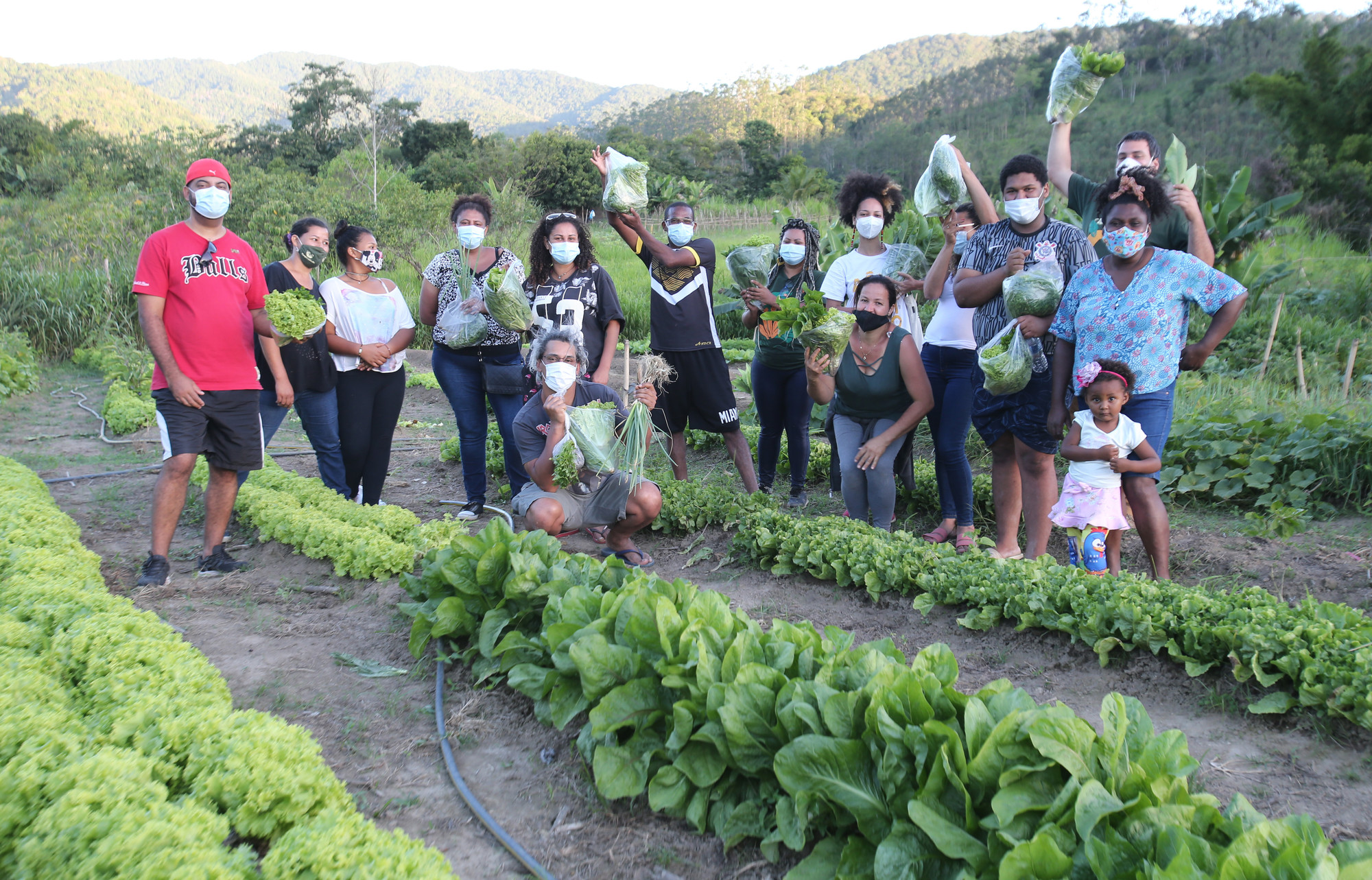
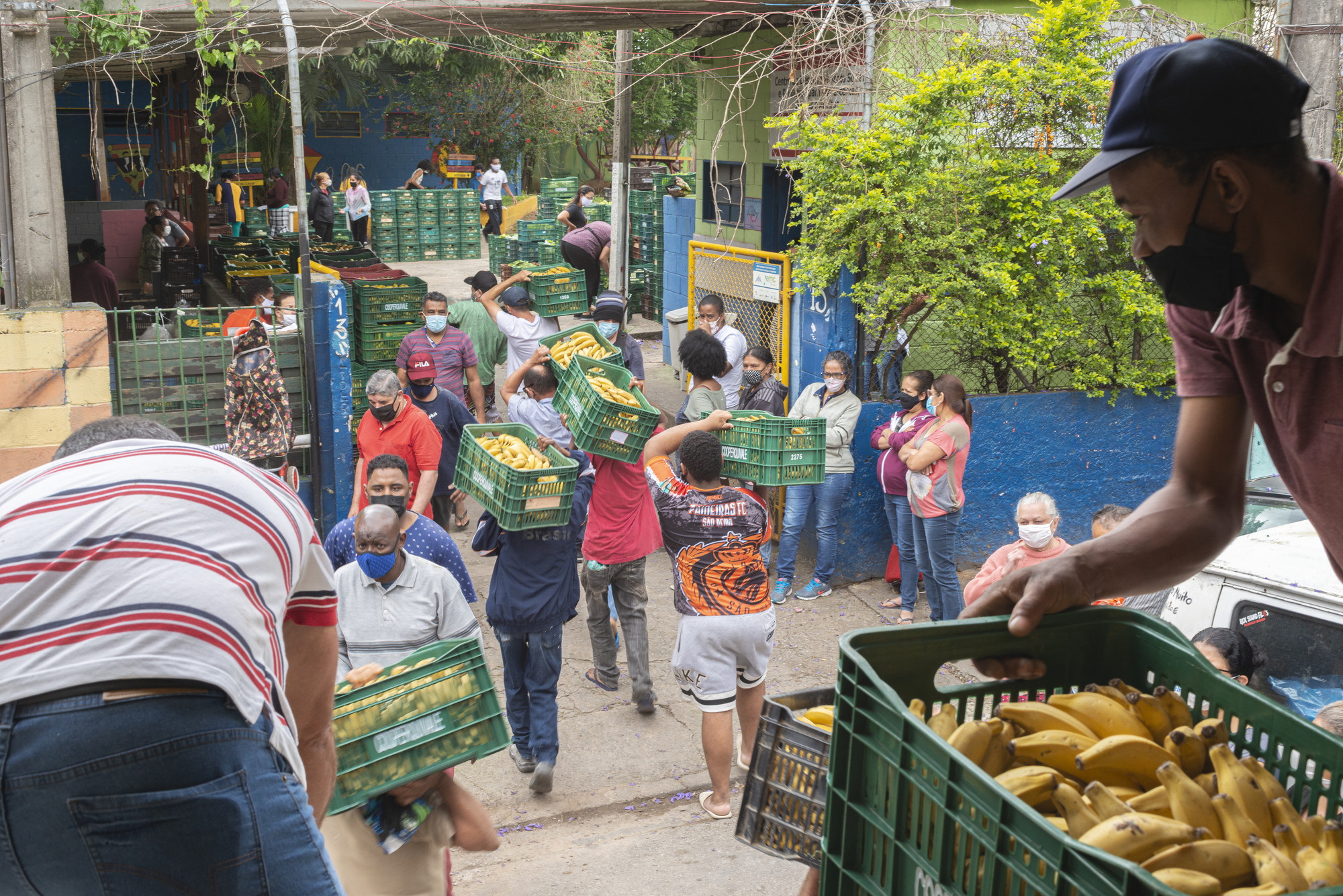
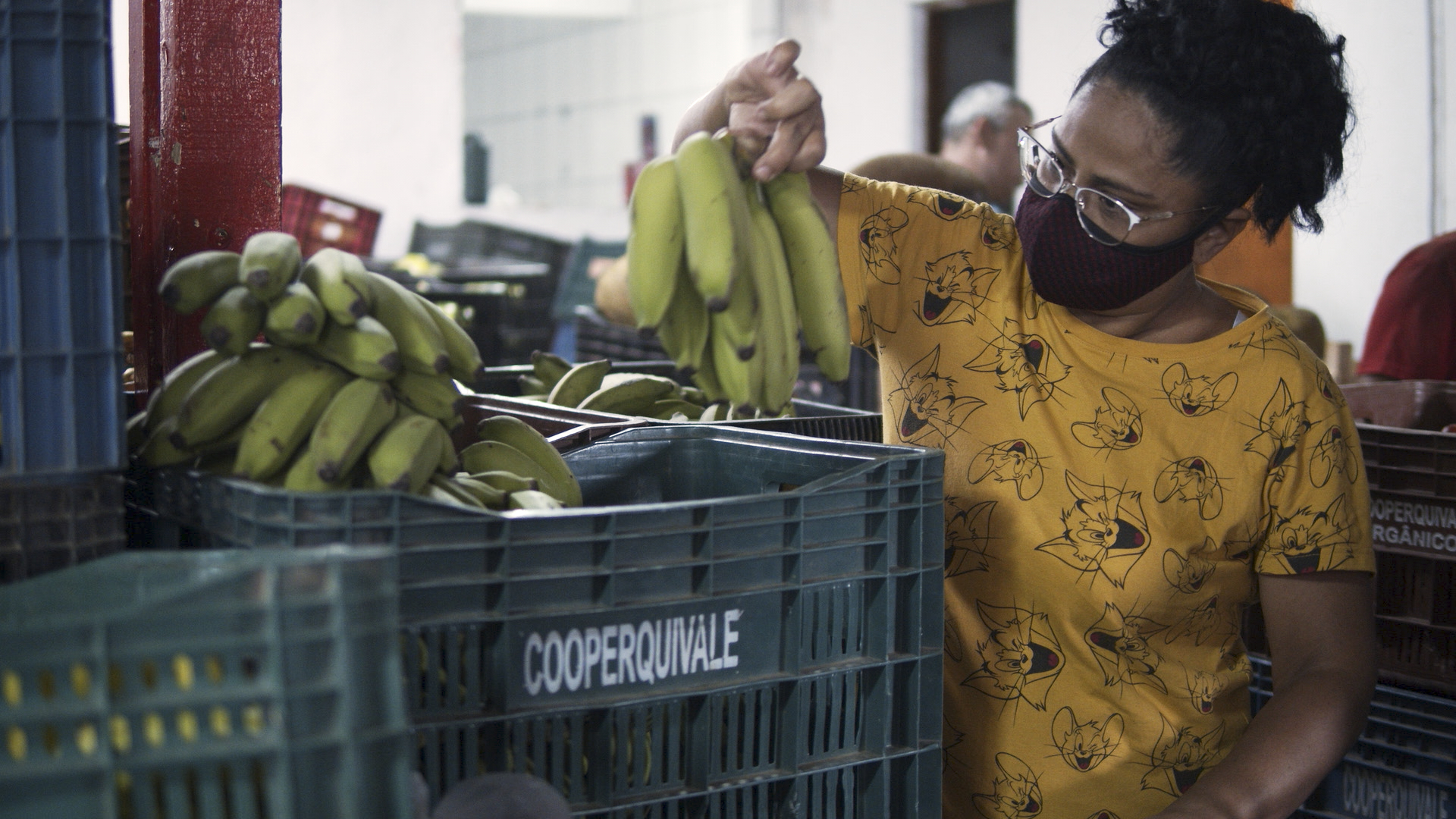
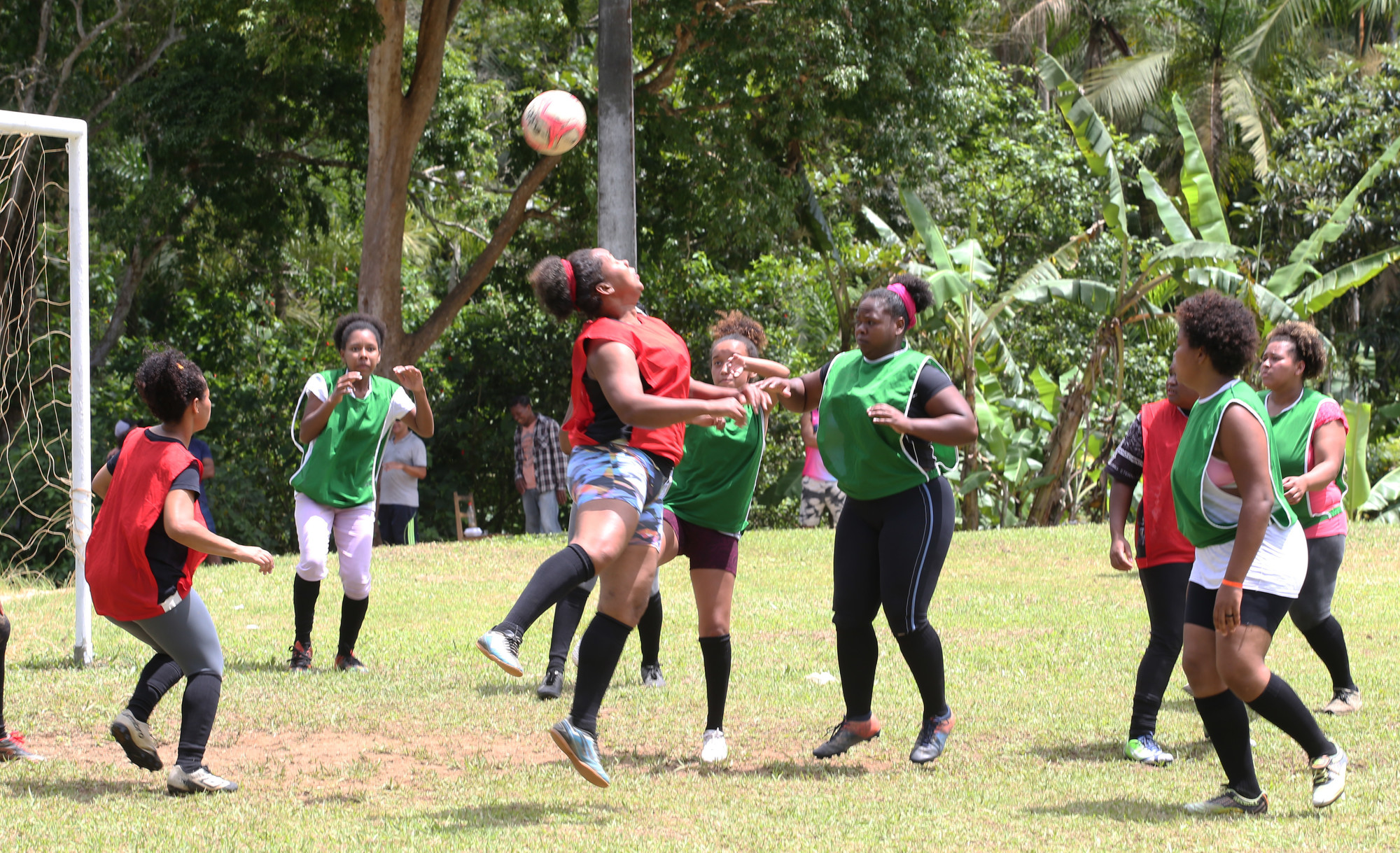
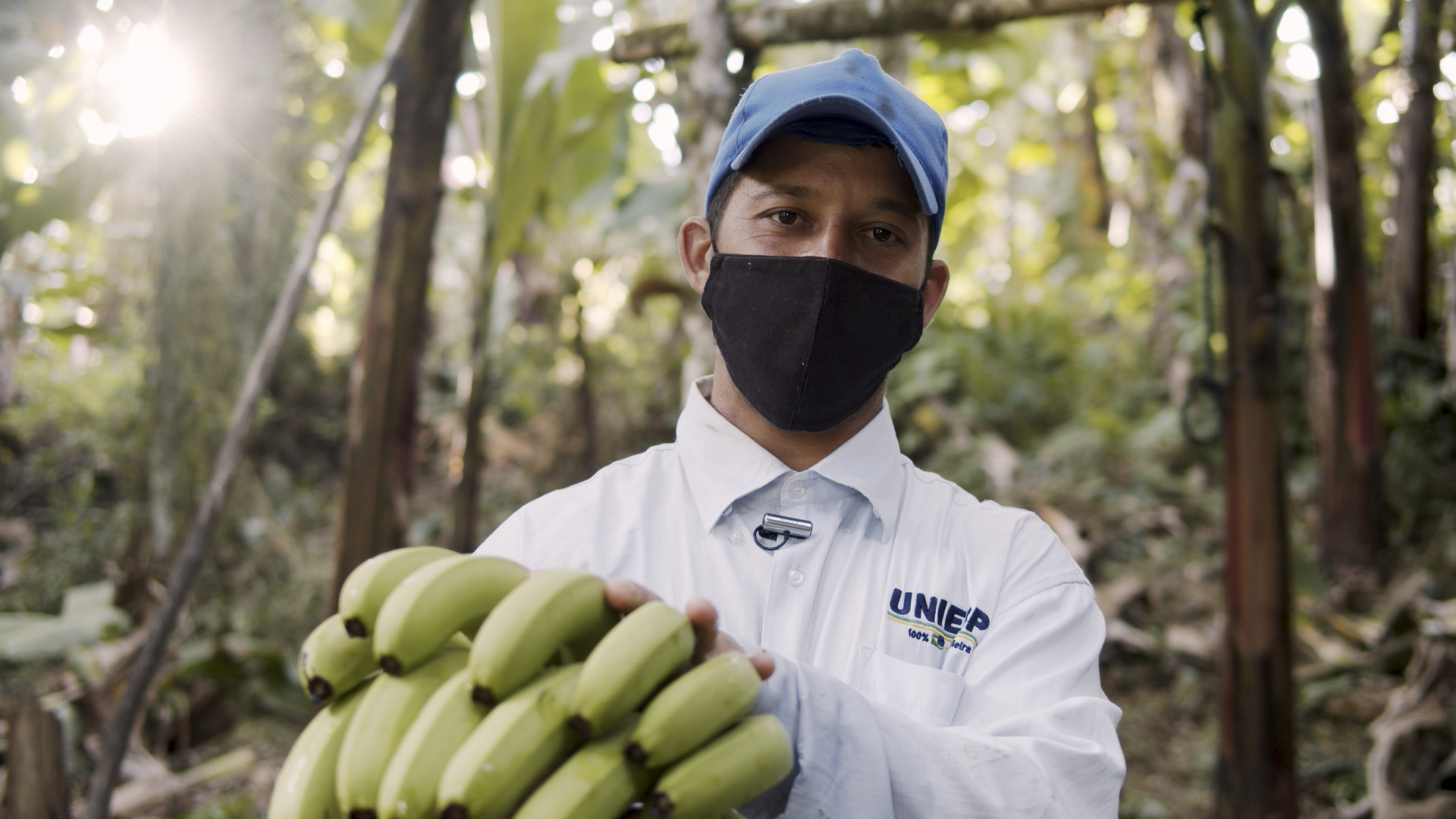
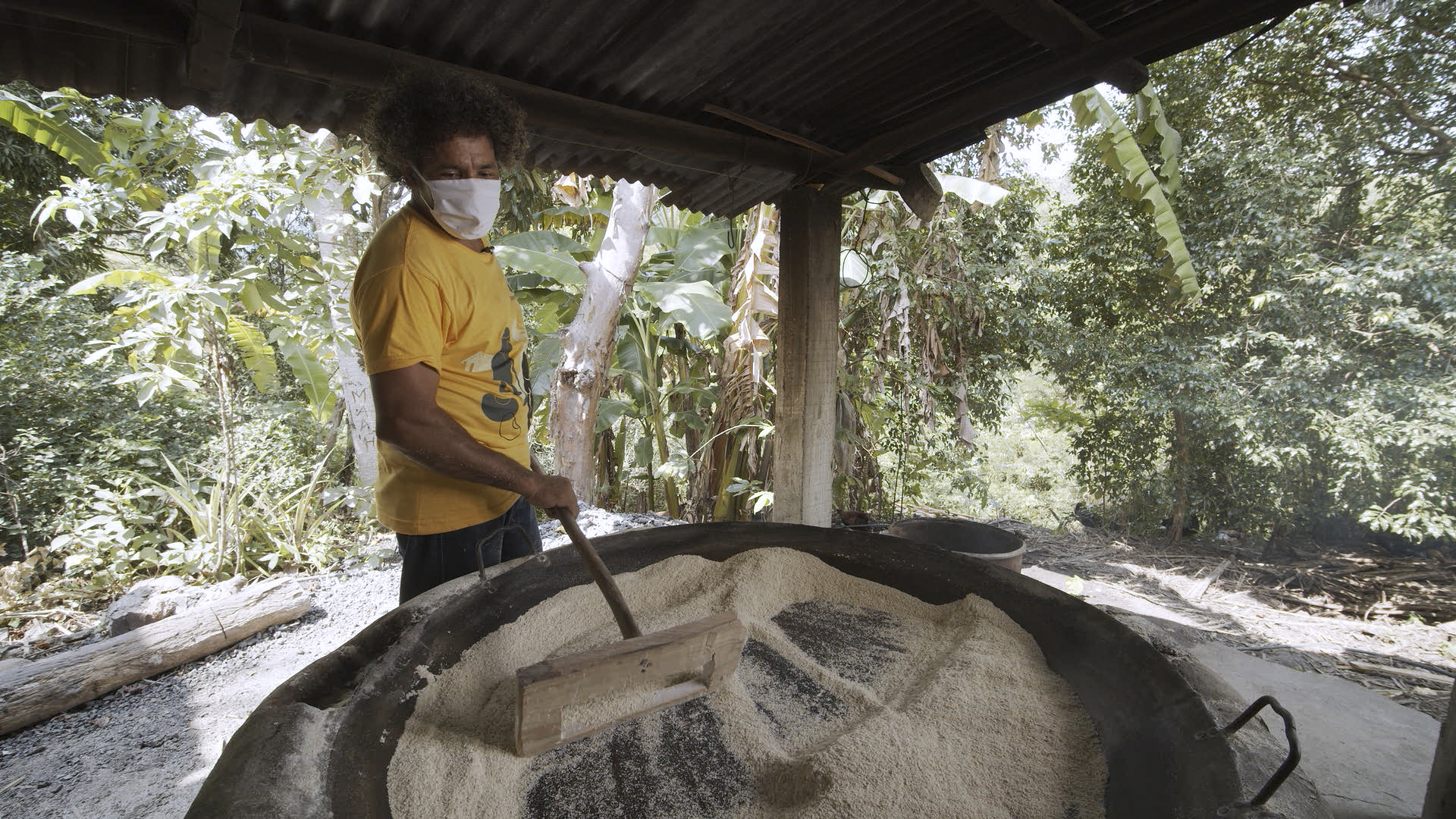
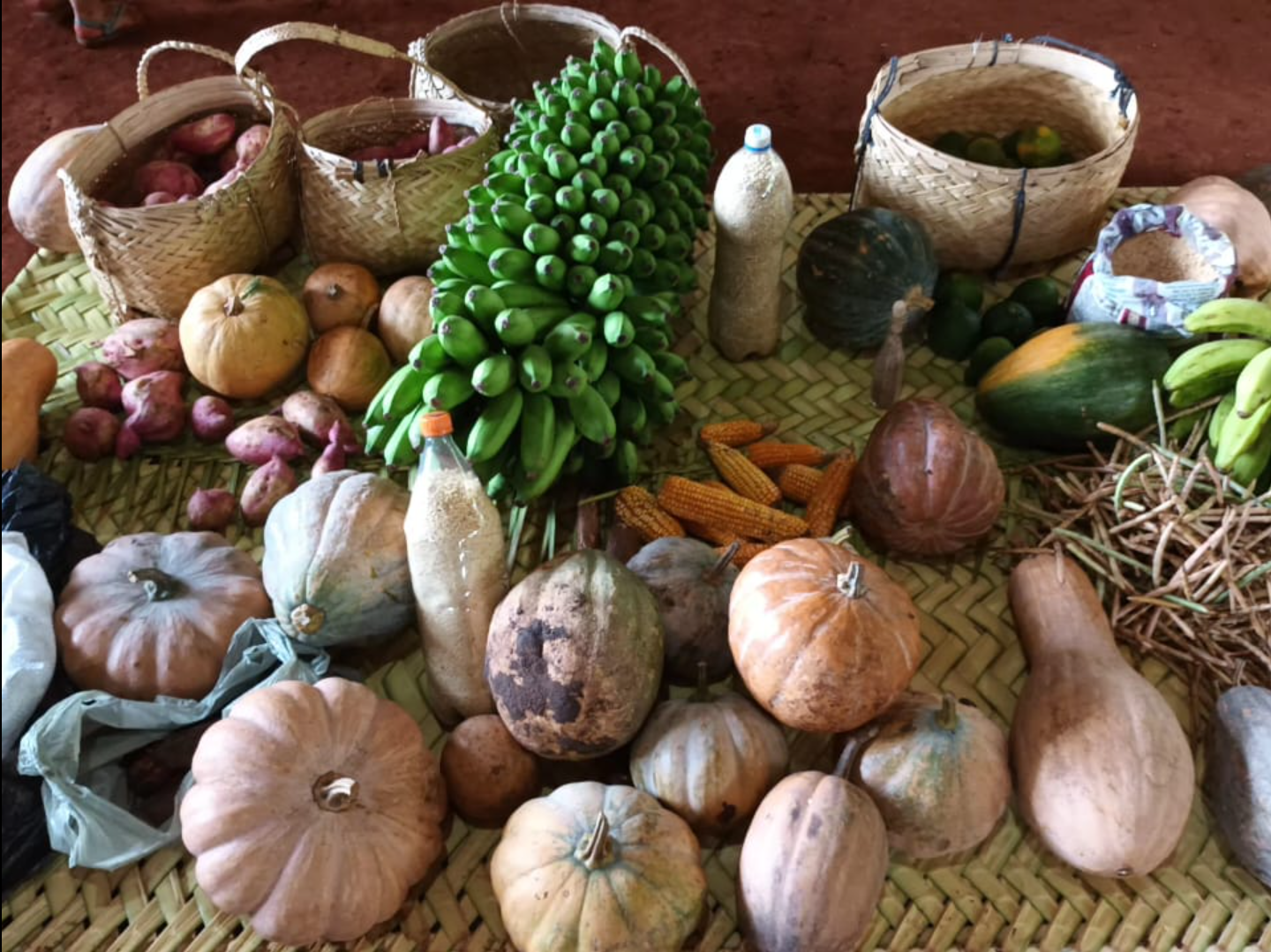

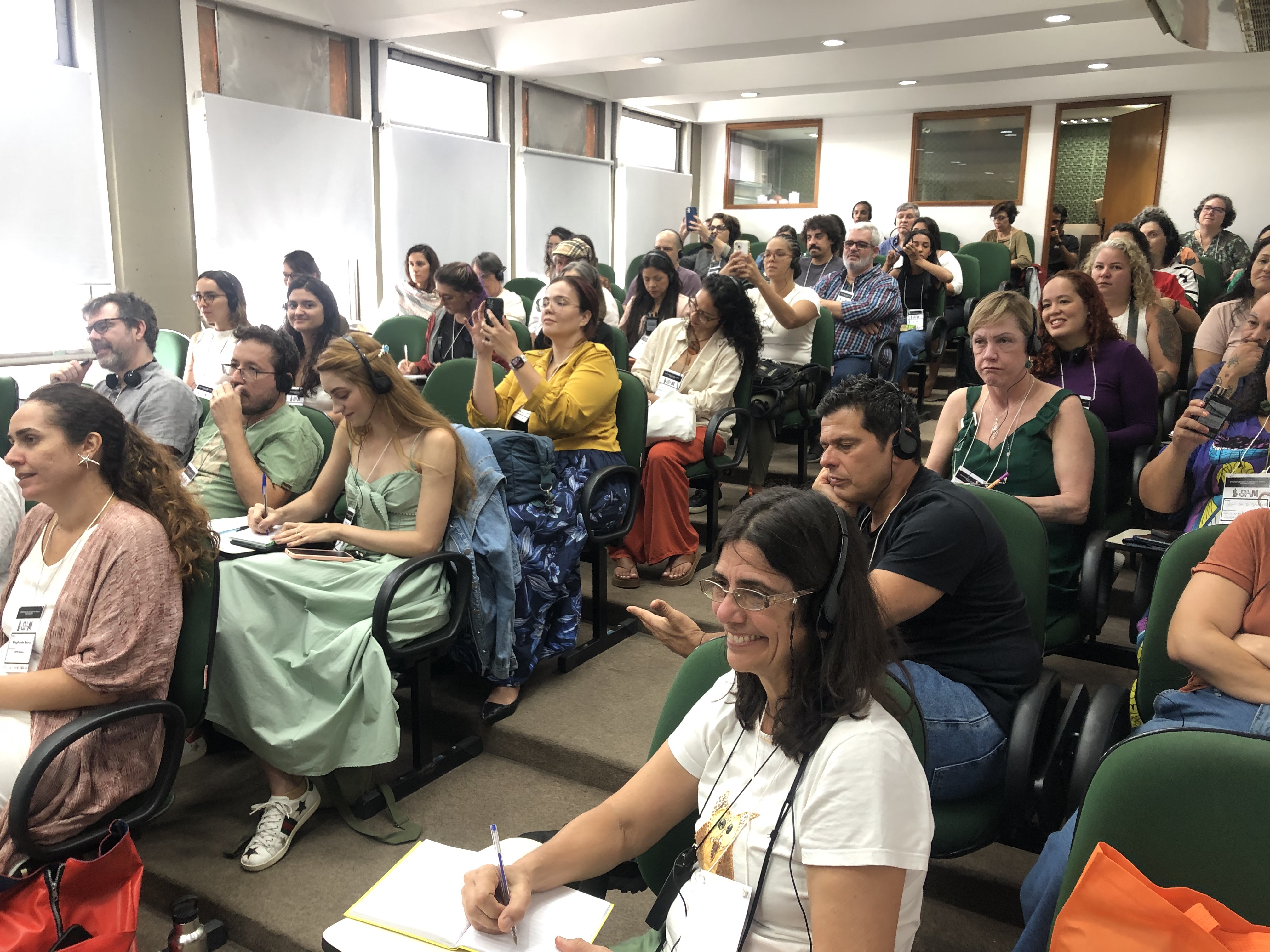
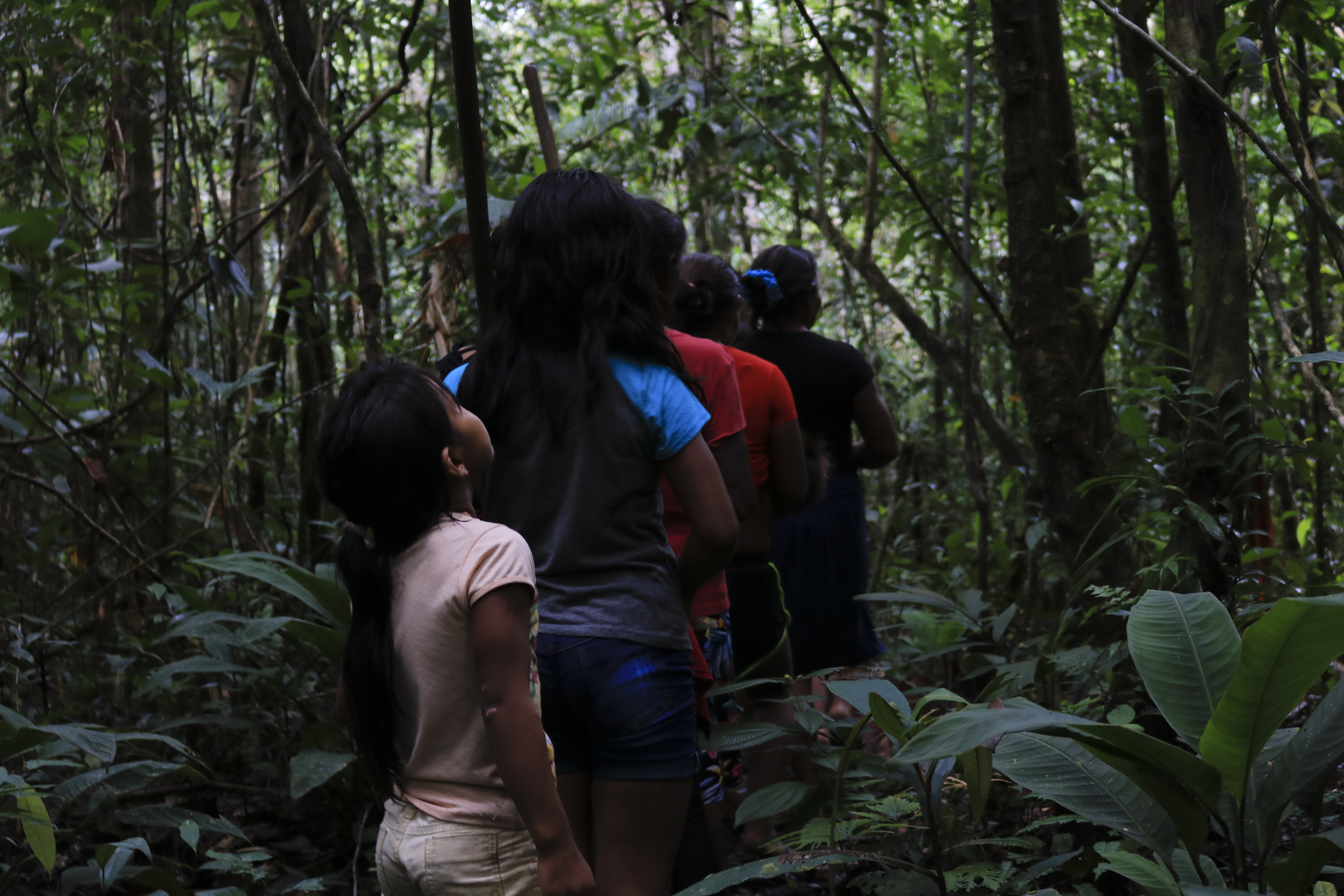
 Carregando
Carregando